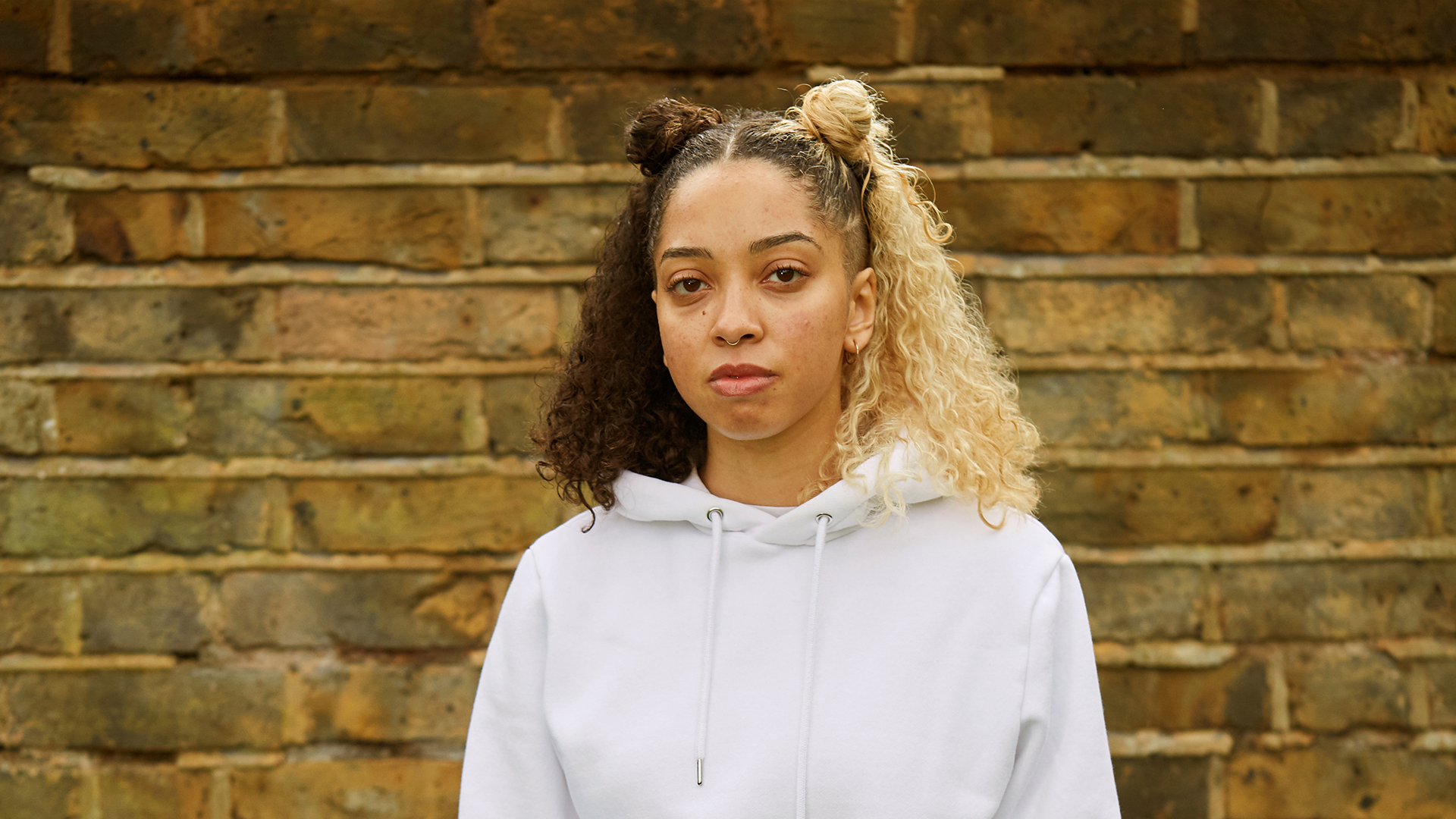Topics mentioned: premenstrual dysphoric disorder (PMDD), depression and low mood
About: In her early twenties, Mariss noticed a change in how difficult it was to manage her mood during her periods. Here she talks about her journey to understanding what she now knows is PMDD.
I’ve always been someone who feels things deeply, particularly in my teenage years. I would often either feel unbearably euphoric and energetic or heavily depressed – no in between. At this point, if there were any emerging hormonal difficulties, they would’ve been very hard to spot considering my constant mood shifts from day to day.
Around my late teens to early twenties, I noticed that dealing with my periods was becoming increasingly difficult, in a way that I’d never experienced before. I’d find myself chucked into a state of distress and unwarranted rage either before or during my cycle. Some months were easier than others, but the ones that were awful, were really awful. It was as if something had possessed me - something had stolen every ounce of control I had over my own body. I’d experience rage, irritability and emotional meltdowns over something as trivial as someone telling me to stop clicking my pen. On days like this I didn’t recognise myself.
Around my late teens to early twenties, I noticed that dealing with my periods was becoming increasingly difficult, in a way that I’d never experienced before.
After playing a long guessing game of ‘what’s getting me down now?’ I began making the connection between my hormones and my emotional state. I researched hormonal disorders to see if any resonated with me, and this led me to suspect that I was experiencing premenstrual exacerbation (PME) or premenstrual dysphoric disorder (PMDD). I also knew about these conditions from the older women in my life who had been right where I was. They saw the experience of their younger selves reflected in what I was going through. Without them, I’d have absolutely no idea that such conditions existed.
It took longer than it should’ve to be taken seriously by doctors and psychiatrists. A concerning number of them didn’t know what the conditions even were and needed me to explain it to them. Last year, my mood during my period became so unbearable and unimaginable that I ended up in A&E due to a mental health crisis triggered by my hormones. This sadly wasn’t a one off. I started to dread my cycle every month, like I was in an endless game of cat and mouse.
I am now on a high dose of citalopram to help with depression around my cycle. It took a while to adjust to it and to find the right dose. Initially, it helped and then I started struggling again because there wasn’t enough of it in my system. I went through multiple side effects too like nightmares, nausea, vomiting, irritable bowel and migraines. I still experience these side effects from time to time, but they’re definitely less heavy.
It’s really important to be persistent and have tunnel vision when you’re trying out a new medication. I’ve tried so many, but I would always give up at the first sign of side effects and stop taking them. The truth of the matter is that every medication will have side effects – it’s all about weighing up the pros and cons. For me, getting through a few really rough weeks of sickness was worth feeling so much better in the long term.
It’s really important to be persistent and have tunnel vision when you’re trying out a new medication. I’ve tried so many, but I would always give up at the first sign of side effects and stop taking them.
Thankfully, I’m now at a point where I’ve found the perfect dose for me and it’s helping me massively. I still dread my periods and feel overly teary and lethargic at times – I suppose that’s something that I’m yet to find a suitable treatment for, but I’m paying attention to my body and finding ways to cope.
For example, when my eating habits are poor during the month, I experience much more grief during my period. As well as taking medication and trying my best to eat well, I’ve started to find a lot of comfort in telling myself reassuring facts when I’m going through a hormonal mood dip. It makes me feel a lot more hopeful when I simply say to myself “you’ve been through this so many times before and it has passed, and it will pass again.”
I’ve been told exercising helps a lot, but I’ve never been quite the sportswoman. From time to time, I follow dance workout routines from YouTube creators, and I find this really enjoyable and helps me get through it. I’m a massive fan of my long walks, so I do that a lot too. Any kind of exercise helps – it doesn't matter what it is as long as it gets you moving.
Before going through this distressing time, I didn’t think it was possible for hormones to cause so much torment. I thought anybody who thought they could was surely overexaggerating. This is NOT the case. And if you feel like something isn’t right with your mental health, hormones and periods, trust your instincts and speak to your GP. I really want to shine a light on PMDD to let others know that you are not overexaggerating – help is out there, and you are not alone in this.
It makes me feel a lot more hopeful when I simply say to myself 'you’ve been through this so many times before and it has passed, and it will pass again.'
More information and advice
Where to get help
-
Childline
If you’re under 19 you can confidentially call, chat online or email about any problem big or small.
Sign up for a free Childline locker (real name or email address not needed) to use their free 1-2-1 counsellor chat and email support service.
Can provide a BSL interpreter if you are deaf or hearing-impaired.
Hosts online message boards where you can share your experiences, have fun and get support from other young people in similar situations.
- Opening times:
- 24/7
-
Samaritans
Whatever you're going through, you can contact the Samaritans for support. N.B. This is a listening service and does not offer advice or intervention.
- Opening times:
- 24/7






